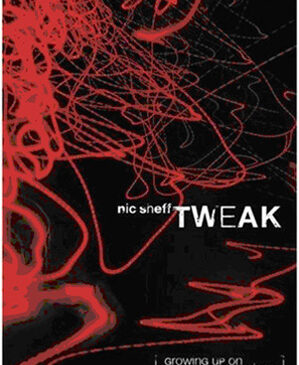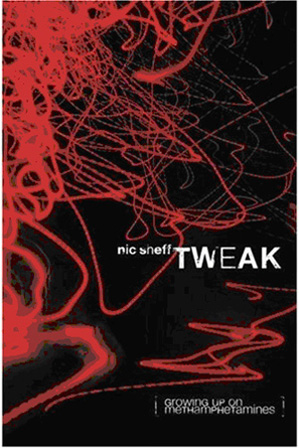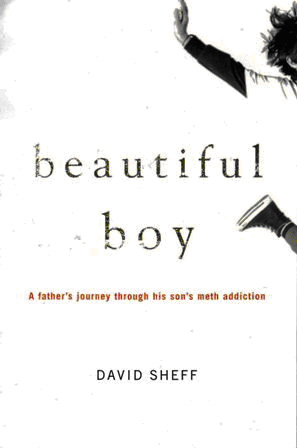Although we hope that reading the BASIS provides the public with access to the latest scientific findings about addiction research, addiction information also includes personal accounts of struggles with various objects of addiction. Science often leaves little room for such personal accounts, but humanities-based studies provide such important opportunities. Undoubtedly, there are many different ways of approaching a humanities-based study of addiction, for example, the use of literature and the power of the written narrative. This week’s BASIS presents readers with a different approach to understanding addiction: an interview of a teacher who recently assigned the NY Times Bestsellers, A beautiful boy: A father’s journey through his son’s addiction and its complementary book Tweak, to her students in a NY Preparatory High School Honors English class as a summer reading book.
Question & Answer*
1. Why did you choose a book that focuses on addiction? Why did you choose a book written from a parent’s perspective?
2. Why did you choose to assign a book dealing with methamphetamine as opposed to more popular/well known substances/behaviors (i.e. alcohol, cigarettes, marijuana, or gambling)? What are you hoping that the students will gain or learn by reading this book?
“Drugs are a problem in high school and I know that the boys know people who are or have been addicted. I don’t think that the boys necessarily know anyone dealing with crystal meth but I know that they are familiar with marijuana. I wanted them to see, from two perspectives, how horrible a life of addiction can be for an entire family.”
3. You mentioned that “Tweak was a very disturbing book.” With this view of the book in mind, did you have any personal hesitation in assigning the book?
“I like assigning books that will make my students think, because good discussions generate from these types of books. Also, I find that high school boys appreciate true stories, so I knew they would enjoy reading Tweak.”
4. Were any parents or other teachers surprised or displeased with the two book choices? Was there any resistance from parents or other teachers? If yes, why? Did they have particular reasons for their opinion?
“The books were chosen for a senior honors English class, and the texts were never questioned by parents or my colleagues.”
5. What was your perception of the boys’ responses to the two books? Did they react differently to the father’s book vs. the son’s (or vice versa)?
“The students liked both books but felt that Beautiful Boy focused more on the science of drug addiction than Tweak did, and they thought some of that was boring. They thought it was important, however, that David discussed how he and his family were affected by Nic’s drug addiction.”
6. Overall, which book did the majority of the students identify with? Whose story could they relate to more, and why?
“The boys enjoyed reading both books but could identify more with Nic Sheff’s Tweak because he was close to their age and they liked his style of storytelling. Overall, they felt his book was very honest.”
7. You mention that you find personal writing fascinating. How effective do you think that these two particular books are in shaping young students’ ideas about addictions, and debunking possible myths?
8. Some people complain that Tweak ends with Nic breaking away from his addiction and getting his life back and that this perpetuates the “not me, I can get over this” idea that young people have about life. Based on your experience with your class and with other books written from a firsthand perspective, how would you respond to that claim?
“We discussed in class that drugs are dangerous, and that although it is possible to get help and recover from an addiction, death from drug addiction is very common. I previously assigned James Frey’s A Million Little Pieces to a different class, and I think that book is more dangerous, in a sense, to teenagers because Frey claims to have recovered without AA or NA. At least Tweak shows that Nic received therapy, went through a detox and rehab program, and continues to live a sober life by attending AA meetings and finding other outlets, like writing and bike riding.”
Discussion
Personal narratives recounting the struggles of addiction are popular because of the firsthand experiences that they describe; these stories represent only one type of humanities-based studies focusing on addiction. In addition to literary narratives, humanities-based studies about addiction could include philosophical discourse, plays, musical performances, and visual art. These alternatives each provide unique information about addiction. One benefit common to them all, however, is that an understanding of the personal struggle of those who are addicted or their loved ones puts the evidence-based facts reported in the BASIS and in peer-reviewed journals into perspective by showing the real life ramifications of addiction.
What do you think? Comments can be addressed to Ingrid R. Maurice
*In the interest of BASIS length guidelines, the teacher’s responses were edited into quotes from her original answers.






